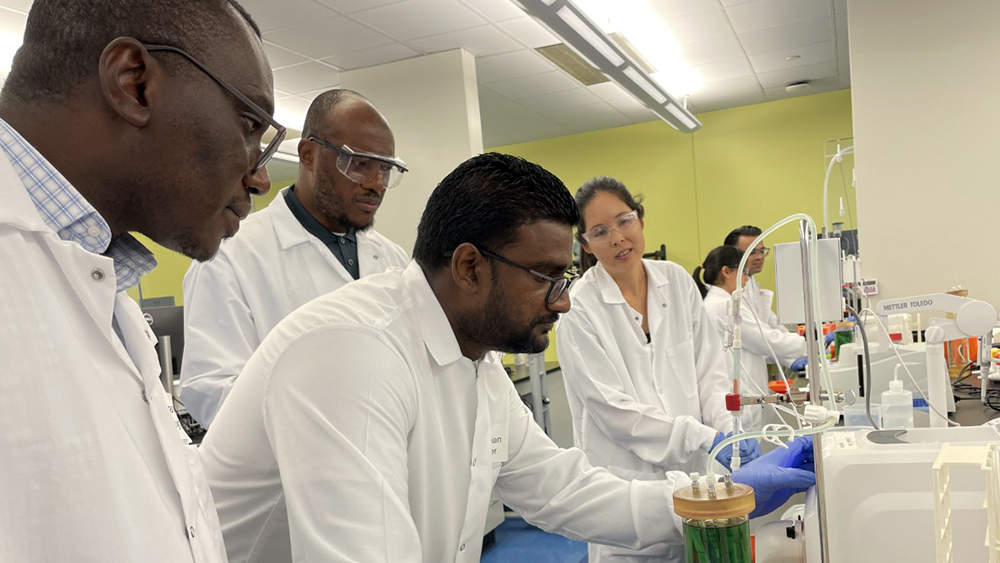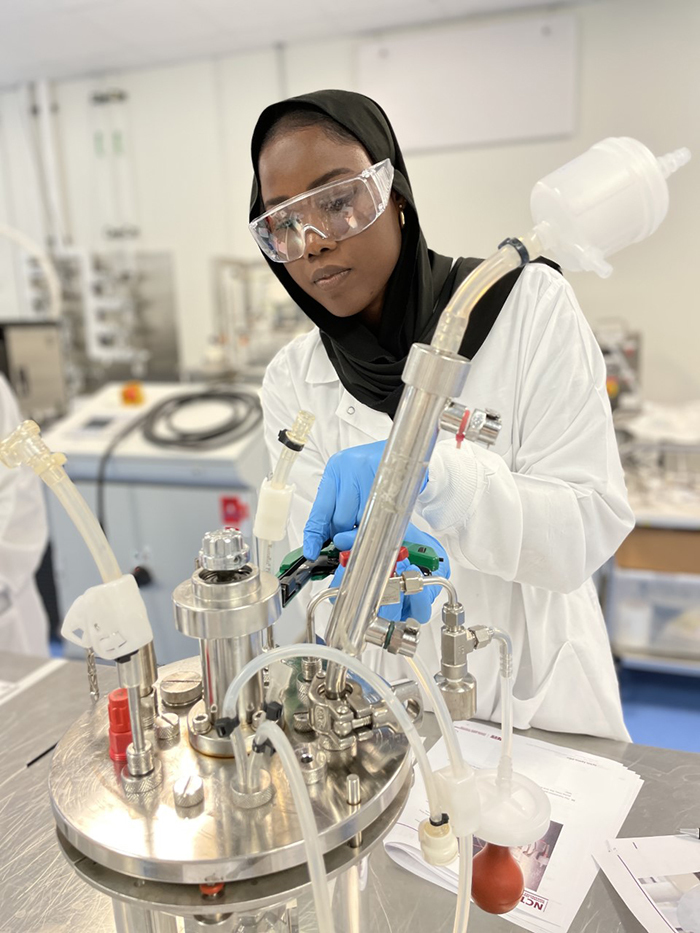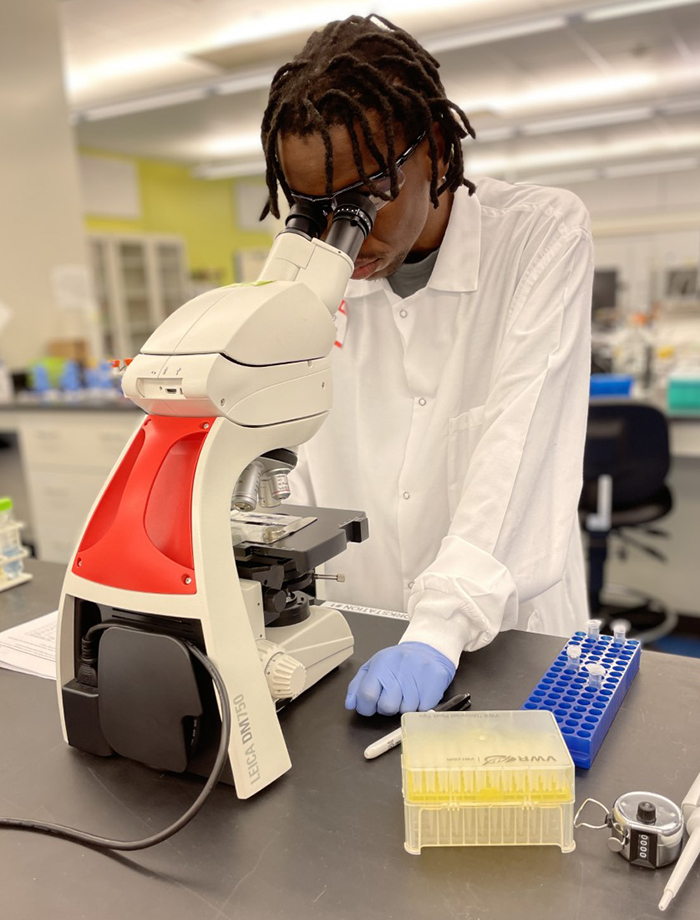
The National Center for Therapeutics Manufacturing (NCTM) is assisting in a worldwide effort to improve Africa’s vaccine production capabilities by training employees of African vaccine manufacturers. A part of the Texas A&M Engineering Experiment Station, NCTM’s mission is to provide workforce education to the global biopharmaceutical and vaccine manufacturing industries.
To aid the worldwide effort, NCTM is partnering with the Biomedical Advanced Research and Development Authority (BARDA), the World Health Organization (WHO), the Africa CDC and others. While the continent is not able to produce many of its own vaccines, the collaborators hope to change that, explained Dr. Baley Reeves, interim director of NCTM.
“The continent of Africa currently produces less than 1% of its own vaccines,” Reeves said. “The Africa CDC has set a goal to increase that number to 60% by the year 2040. We’re helping them achieve that by training employees to commercially produce vaccines.”
The continent is struggling to produce a sufficient supply of vaccines due to a lack of manufacturing infrastructure and workers who are educated in commercial vaccine production. The training provided by NCTM teaches workers how to produce vaccines on a large scale following Current Good Manufacturing Practices.
“Most of the vaccine manufacturers in Africa are still developing their processes,” Reeves said. “The training we provide at NCTM focuses on helping them develop large-scale processes to support the commercial production of vaccines. Attendees are trained to use manufacturing-scale equipment and are educated on best practices for vaccine production to ensure patient safety.”

In 2022, NCTM provided training on traditional vaccine production for 48 people, divided equally among four cohorts. The center’s efforts are expanding in 2023; NCTM will train up to five additional cohorts in their basic vaccine manufacturing course.
“We limit each cohort to a maximum of 12 people so that we can provide a hands-on experience for each participant,” Reeves said. “The intense, two-week program prepares participants to return home and help with vaccine manufacturing. We affectionately refer to it as the biopharma boot camp.”
In addition to the biopharma boot camp, NCTM will also begin delivering week-long, advanced training programs on mRNA vaccine process development for African vaccine manufacturers. This type of vaccine was widely used during the COVID-19 pandemic and currently forms the basis of the WHO’s vaccine platform for developing countries. The center will run the mRNA vaccine manufacturing course for three African cohorts this year and will open enrollment to the public starting in 2024.
To provide training for the African cohorts, for both traditional and mRNA vaccines, NCTM is partnering with numerous organizations. This collaboration includes not only BARDA, WHO and the Africa CDC but also the South African Medical Research Council, the Partnership for African Vaccine Manufacturing and others.

“By collaborating with so many organizations, we have a better chance of saving countless lives,” Reeves said. “Producing more vaccines in Africa will not only provide thousands of jobs but also will enable the people who live there to have better access to vaccines and ultimately healthier lives.”
NCTM was started more than 10 years ago through funding from BARDA to create a Center for Innovation in Advanced Development and Manufacturing (CIADM). CIADMs were created to ensure that the U.S. had the infrastructure to rapidly create vaccines as a response to a pandemic or biological attack. Today, Texas A&M is the only CIADM remaining.
“At its creation, NCTM was the only CIADM that focused on workforce development,” Reeves said. “When the COVID-19 pandemic hit, we were part of the federal government’s Operation Warp Speed and rapidly trained nearly 400 employees to manufacture COVID vaccine candidates.”
Because of its success, BARDA has invested heavily in NCTM. The agency recently awarded NCTM a $5 million grant to expand the training courses it has provided over the past year. The center will use this funding for facility and equipment updates.
“We are excited to be part of a greater global public health initiative,” Reeves said. “We’re looking forward to continuing our training and making a difference in the health of Africa and the health of the world.”
